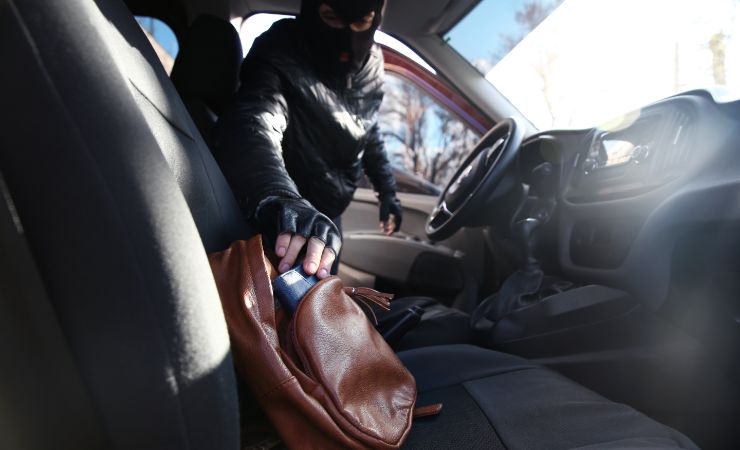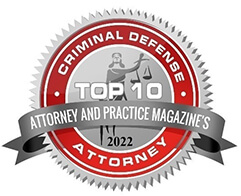Staten Island Larceny Lawyer

Staten Island Larceny Attorney
Larceny is a type of theft crime that involves taking someone else’s property without their consent, with the intent to deprive them of it permanently. Larceny can take many forms, such as stealing a purse or wallet, shoplifting goods from a store, or embezzling money from an employer. In the United States, larceny is a crime punishable by imprisonment and fines, depending on the value of the property stolen and the case’s specific circumstances. If you have been accused of larceny, it is important to seek the counsel of an experienced Staten Island criminal defense attorney as soon as possible to assess the strength of the prosecution’s case against you and to build an effective defense strategy.
At The Vitaliano Law Firm, we are committed to defending the legal rights of clients accused of larceny in Staten Island and throughout New York City. We have decades of experience representing clients in state and federal criminal cases, and we understand the complex nuances of larceny law. We have successfully defended numerous clients accused of larceny, and we can help create a personalized defense strategy to give you the best chance of achieving a favorable outcome in your case. Connect with us today to see what makes us the best criminal defense option in Staten Island.
What Are the Most Common Forms of Larceny?
There are several common forms of larceny, including:
- Petit larceny. This is the most common form of larceny and involves the theft of property valued at less than $1,000. Petit larceny is generally a misdemeanor in most states and is punishable by imprisonment and fines.
- Grand larceny. This form of larceny involves the theft of property valued at $1,000 or greater. Grand larceny is generally a felony and is punishable by imprisonment and fines.
- Shoplifting. This form of larceny involves stealing goods from a store. Shoplifting can be charged as either petit larceny or grand larceny based on the value of the goods stolen.
- Embezzlement. This form of larceny involves stealing money or property entrusted to you, such as funds from an employer or client. Embezzlement can be charged as either petit or grand larceny, depending on the total amount of the property stolen.
- Robbery. This form of larceny involves using force or threats to take someone else’s property. Robbery is generally a felony and is punishable by imprisonment and fines.
What Evidence Can Prove Your Innocence Against a Larceny Charge?
- Eyewitness testimony. If there are witnesses who saw the alleged larceny take place and can testify that you were not the perpetrator, this can be strong evidence to showcase your innocence.
- Video footage. Security cameras or other video footage of the alleged larceny may be able to show that you were not the perpetrator. This gives everyone a first-hand look at what actually happened and can be used to prove your innocence.
- Alibis. If you have an alibi or evidence that you were elsewhere at the time the larceny is alleged to have taken place, this can help to prove your innocence by providing an alternate explanation for your whereabouts during the incident.
- Lack of intent. To be convicted of larceny, the prosecutor must prove you intended to steal the property. If you can show that you did not have the required intent, this can be a strong defense. For example, if you took the property by mistake or under duress, this can help to prove that you did not intend to commit larceny.
- Lack of opportunity. If you can show that you did not have the opportunity to commit larceny, this can also be a strong defense. For example, you may not have had access to the property or the means to have stolen it.
Larceny Lawyer FAQs
Q: How Do I Get Petit New York Larceny Charges Dropped?
A: There are several ways to get petit larceny charges dropped in New York. These include negotiating with prosecutors, demonstrating a lack of evidence, and raising legal defenses. Experienced theft lawyers can help you determine the best defense avenues based on the specific circumstances of your case. Options may include agreeing to certain conditions, such as community service or restitution, or arguing a lack of evidence to prove guilt beyond a reasonable doubt. Legal defenses may include demonstrating a legitimate claim of ownership or a lack of intent to commit larceny.
Q: Is Larceny a Felony?
A: In New York, larceny is generally a felony with $1,000+ of value. This is known as grand larceny. When less than $1,000, the crime is classified as petit larceny, which is a misdemeanor. The specific charges and penalties for larceny will depend on the value of the property stolen and the case’s specific circumstances. Larceny is punishable by imprisonment and fines, and a conviction can have long-term consequences, including a criminal record.
Q: How Much Do Larceny Attorneys in NYC Cost?
A: The cost of hiring a larceny lawyer in NYC can vary depending on several factors, including the attorney’s experience, the complexity of the case, and the estimated time required to handle the case. Criminal lawyers in NYC may charge a timed hourly rate, flat fee, or a contingency fee, which is a percentage of any settlement or judgment obtained in the case. The hourly rate for an attorney in private practice in NYC ranges from $100 to $300 per hour.
Q: What Is the Difference Between Theft and Larceny?
A: The most significant difference between theft and larceny is the use of force or threat of force. Theft is a crime that involves taking property with force or the threat of force, while larceny is the crime of taking property without either. Both theft and larceny are types of theft, with theft being the more serious offense due to the use of force or threat. Both theft and larceny can have serious legal consequences, including imprisonment and fines.
Contact The Vitaliano Law Firm Today
The Vitaliano Law Firm has immense experience in criminal defense cases, and our knowledgeable attorneys can help you understand your rights and develop a strong defense against your charges. Contact us today to schedule a consultation and discuss your case. Then, we will help you decide on the course of action to get the best outcome possible.
Testimonials






